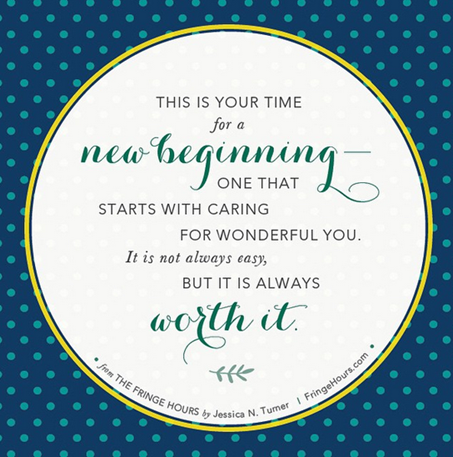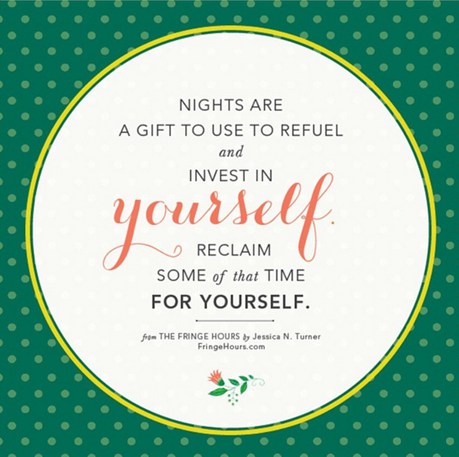I’ve written before about how, as a working mom, I often feel like like life is a juggling act. I know this is true for stay-at-home moms. It’s really hard to make time for ourselves and self-care is usually not a priority. My friend Jessica just wrote a book called The Fringe Hours about this very thing, and she and I caught up on what prompted her to focus on this topic.  What made you passionate enough about this topic to want to write a book about it? Because I work full-time, blog, have a family and love to craft, I am often asked “how do you do it all” by readers, friends, family members, etc. and the answer is that I use my fringe hours well (and that I DON’T do it all). I am incredibly passionate about self-care and think that more women today need to be intentional about making time for themselves and their passions.
What made you passionate enough about this topic to want to write a book about it? Because I work full-time, blog, have a family and love to craft, I am often asked “how do you do it all” by readers, friends, family members, etc. and the answer is that I use my fringe hours well (and that I DON’T do it all). I am incredibly passionate about self-care and think that more women today need to be intentional about making time for themselves and their passions.
That said, The Fringe Hours is not a time management book about doing more. It is a book that hopefully inspires women to be more creative and fulfilled. I conducted a survey as part of my research and more than 2,000 women responded. Their responses about time and their struggles related to self-care were incredibly eye-opening. So many women are burdened with guilt, comparison and self-imposed pressures, and these feelings prevent them from living wholly. I address these issues in the book as well.  What are fringe hours? Fringe hours are those pockets of time in a day that often go underused or wasted entirely. If a woman thinks she doesn’t have any spare time, can this book help her?
What are fringe hours? Fringe hours are those pockets of time in a day that often go underused or wasted entirely. If a woman thinks she doesn’t have any spare time, can this book help her?
Absolutely. One of the first things I would recommend is to have her track her time for a week. Similar to a weight loss app that has you track food, when you track your time, you are able to see exactly how you are spending your time, where you might find fringe hours, and changes you might need to make to have more time in your week. You interviewed a lot of women. Where there any patterns that emerged? Anything that surprised you? I interviewed close to 50 women for The Fringe Hours, but what we discussed varied based on the woman, her life stage and passions. That said, married, single, kids, no-kids – everyone dealt with busyness and recognized that self-care had to be an intentional choice. It isn’t something that most women practice naturally, on a daily basis. The biggest surprise to me was when women said that they didn’t think their husbands would support them making time for themselves, or would be too overwhelmed by taking care of their children. My husband is always so supportive and incredibly engaged with our kids that I was a bit taken aback that this isn’t the norm in all relationships. (I shouldn’t have been surprised, but I was…). I hope that if there are women who feel this way who read The Fringe Hours, that they will have the courage to have an honest discussion with their spouses about how they feel. 
What do you hope women take away from this book? The Fringe Hours is a practical book that offers many takeaways, regardless of a reader’s circumstances. I hope that women are encouraged to intentionally practice self-care and feel equipped to make time for their passions.

Rage Against the Minivan sometimes earns revenue through sponsored posts, which are clearly labeled, and occasional affiliate links to recommended products. I only feature products that I truly like, and my opinions are always my own.